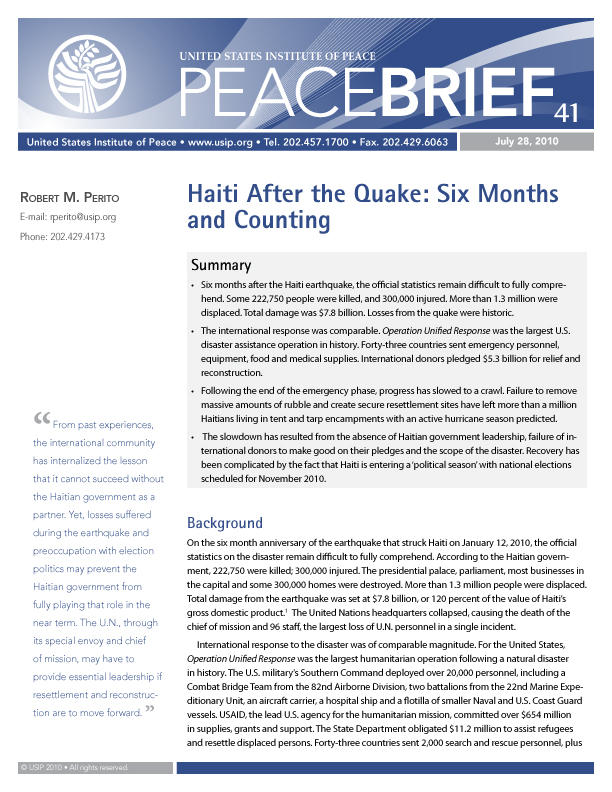Haiti After the Quake: Six Months and Counting
Six months after the Haiti earthquake, the official statistics remain difficult to fully comprehend. Some 222,750 people were killed, and 300,000 injured. More than 1.3 million were displaced. Total damage was $7.8 billion. Losses from the quake were historic.

Summary
- Six months after the Haiti earthquake, the official statistics remain difficult to fully comprehend. Some 222,750 people were killed, and 300,000 injured. More than 1.3 million were displaced. Total damage was $7.8 billion. Losses from the quake were historic.
- The international response was comparable. Operation Unified Response was the largest U.S. disaster assistance operation in history. Forty-three countries sent emergency personnel, equipment, food and medical supplies. International donors pledged $5.3 billion for relief and reconstruction.
- Following the end of the emergency phase, progress has slowed to a crawl. Failure to remove massive amounts of rubble and create secure resettlement sites have left more than a million Haitians living in tent and tarp encampments with an active hurricane season predicted.
- The slowdown has resulted from the absence of Haitian government leadership, failure of international donors to make good on their pledges and the scope of the disaster. Recovery has been complicated by the fact that Haiti is entering a ‘political season’ with national elections scheduled for November 2010.
About this Report
This report is based on the work of USIP’s Haiti Working Group which has held a series of public forums on Haiti since 2006. It is also based upon numerous discussions with academic experts, journalists, businessmen and Haitian citizens, plus reports published by the U.N., Congress and other sources. The author, Robert Perito, is the director of the USIP’s Haiti Program.


